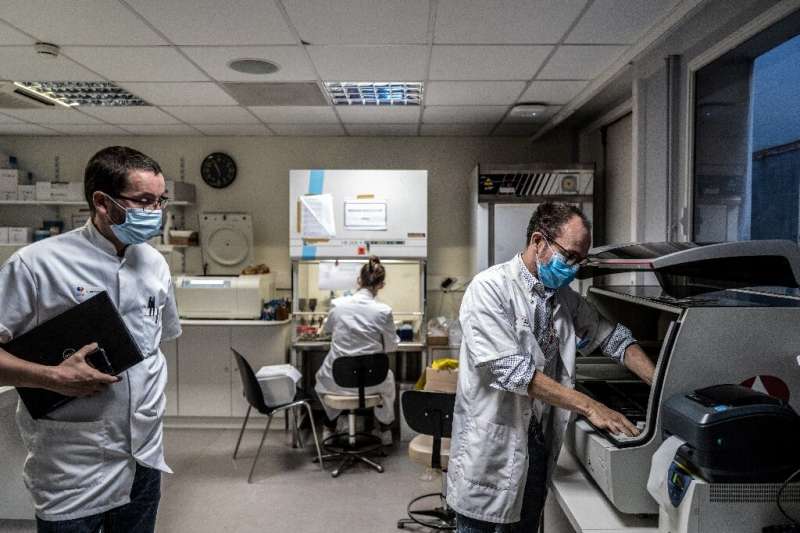Science and scientists highly regarded across globe: survey

As citizens across the world await a vaccine to end the coronavirus pandemic, a survey by Pew Research Center published Tuesday has good news: scientists and their research are widely viewed positively across much of the globe.
The center polled 32,000 people between October 2019 to March 2020 in Europe, the Asia-Pacific region, and in the United States, Canada, Brazil and Russia, finding that a median of 82 percent consider government investment in scientific research worthwhile.
In each of the 20 countries surveyed before the Covid-19 outbreak reached pandemic proportions, majorities have at least some trust in scientists to do what is right.
Scientists as a group are highly regarded, enjoying "a lot" of trust by a median of 36 percent, the same share who say this about the military—though in eight countries including India, the United States and France, people trust the military more than scientists, the survey showed.
This is much higher than the shares who say this about business leaders, the national government and the news media.
But the generally favorable views toward scientists also revealed a partisan divide: public trust in scientists is often higher for those on the left than the right.
These differences were especially pronounced in the US, where 62 percent on the left had a lot of trust in scientists, compared with two-in-ten on the right.
In Canada, the figures were 74 percent on the left and 35 percent on the right, in the UK it was 62 and 35.
The differences also existed albeit on a smaller scale in Germany (17 points), Sweden (15 points) and Spain (10 points).
"As the global landscape for scientific research continues to shift, these findings showcase the generally positive views that publics around the world hold for scientists and their work, as well as ideological fault lines," said Cary Funk, Pew's director of science and society research.
A median of seven-in-ten across the 20 countries said climate change is having at least some effect on their local community.
In some places – Italy, Spain and Brazil – about half or more see a great deal of impact from climate change in their community.
Here, too, political ideology played a significant role: Australians on the left for example were more than twice as likely as Australians on the right to say climate change is a very serious problem (79 percent v 36 percent).
In Canada, the left-right divide on climate change was 82 percent against 44 percent.
A majority of adults in 17 of the 20 publics rate the preventive health benefits from childhood vaccines –- such as the measles, mumps and rubella vaccine -– to be high.
But while most places considered the risk of side effects from childhood vaccines to be low, half or more in Japan, Malaysia, Russia, South Korea, France and Singapore consider the risk to be medium or high.
Majorities said the media does a good job covering science, but also said the public often doesn't know enough to understand news on scientific research.
Around two-thirds or more said the news media do a very or somewhat good job covering science topics, while far fewer said the media do a bad job covering science—medians of 68 percent against 28 percent across the 20 countries.
But across the countries surveyed, 74 percent considered limited public understanding of science to be a problem for media coverage of science research.
More information: The report will be available at this link at the time of release: www.pewresearch.org/science/20 … cross-global-publics
© 2020 AFP




















